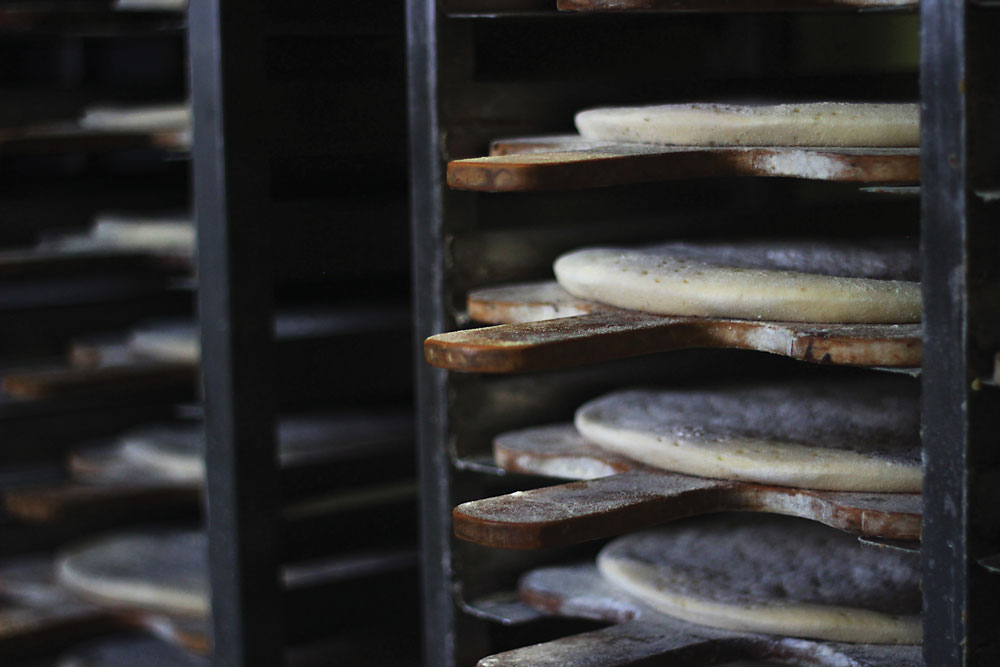In Lehmann's Terms: the big freeze
Tom “The Dough Doctor” Lehmann answers your questions about freezing pizza dough.
In Lehmann's terms: counting calories, part 2
Tom “The Dough Doctor” Lehmann discusses why you should monitor the new labeling laws.
In Lehmann's terms: saving time and adding garlic
Tom “The Dough Doctor” Lehmann discusses adding garlic to dough and a user-friendly deep-dish option.
Acting poolish
The Dough Doctor explains how to incorporate poolish or ferment into your dough.
In Lehmann's terms: mix-ins
QUESTION: We recently changed over to using active dry yeast when making our dough. We hydrate it in 100°F water for 10 minutes, but we are unsure if we can add it to the remainder of the water, which is 65°F, or if we should keep it separate from the cold water. ANSWER: Once you have hydrated the active dry yeast (ADY), […]
In Lehmann’s terms: dough sheeting, milk addition and hard water
The Dough Doctor weighs in on several elements of dough creation.
In Lehmann's terms: buttering up and mixing down
The Dough Doctor explains the effect of mix times and switching from olive oil to butter.
Flour power
Considering something other than white or wheat with your next flour order?
In Lehmann's terms: The rising cost of flour
Learn the real reasons for increasing flour prices.
In Lehmann's terms: pan and dough dilemmas
Find personal pizza pans and correct water temps.
In Lehmann's terms: calzones and conveyors
Make grilled calzones and learn new oven tricks.
In Lehmann’s Terms: Solving Your Sugar and Oil Dilemmas
Tom Lehmann describes differences in various sugars and oil ingredients.
In Lehmann's terms
Tom Lehmann – “The Dough Doctor”, explains the nuances of dough.















